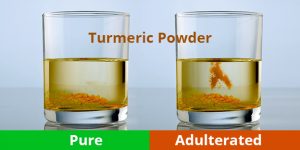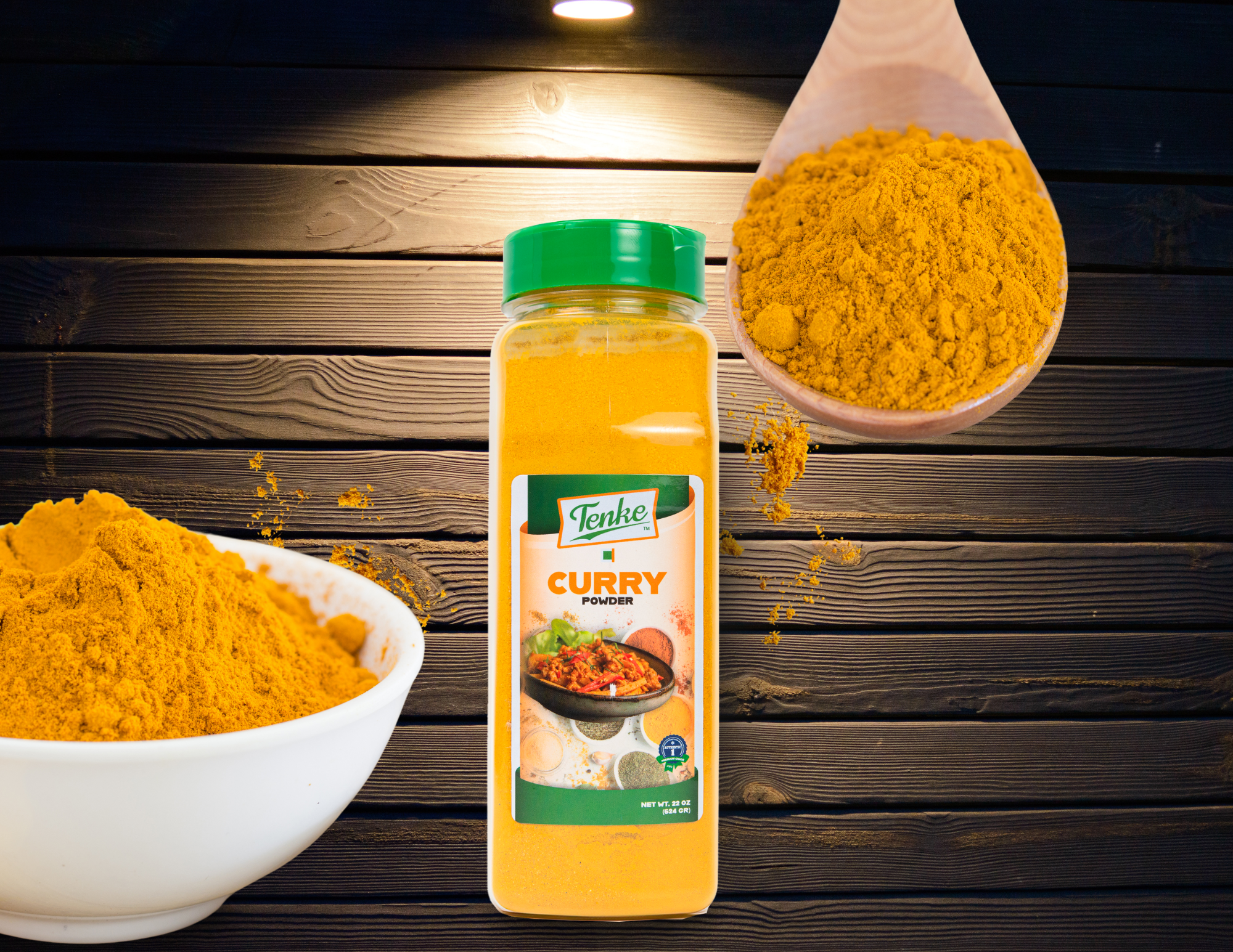
Initially spice powders served the purpose of lending flavor, texture and aroma to whichever dish that they were added to. When used in right amounts and perfect combinations, authentic spices transformed the inherent character of the dish for the better. Then their other benefits emerged, most notably the positive impact on health. Their role as preservatives that enabled food to retain its freshness over a prolonged duration also came into the spotlight.
Through all the goodness of spice powders, one aspect that raised a question-mark pertained to purity. A fact that became apparent was that only pure spices made any discernible difference. There were times when a spice looked great but did not smell or taste as strongly, which meant that it was probably adulterated. Difficult though it might be to accept, fact remains that not all spice powders are born equal, even though they may look the same. A brand that stands out in this context is Tenke, which upholds quality in all aspects, from producing to packaging.
Adulteration of Spice Powders – Why and How
Adulteration of spice powders occurs when a substance is added to the pure spice to cause dilution. Most of the times, the additive is a contaminant, which is added to improve appearance, increase weight, or simply to fetch profits. Regardless of the objective, adulteration lowers the quality of the spice powder by several notches. Depending on the type, adding an adulterant can also render the spice detrimental to health, and unsafe for consumption.
 Another reason for adulterating spice powders pertains to masking low-quality raw materials and low yield. Some producers use low-quality whole spices and mix adulterants while powdering to mask the lack of color, flavor or aroma. Likewise, sometimes producers mix contaminants to increase the quantity so that the spice powder seldom goes out of stock.
Another reason for adulterating spice powders pertains to masking low-quality raw materials and low yield. Some producers use low-quality whole spices and mix adulterants while powdering to mask the lack of color, flavor or aroma. Likewise, sometimes producers mix contaminants to increase the quantity so that the spice powder seldom goes out of stock.
Given all these reasons, there are all kinds of spice powders available in the market. In such a situation, the onus is on you to be able to identify and buy genuine and pure products. Always opt for a provider who takes pride in being transparent. For example, spice brands like Tenke reveal their sources and ingredients, thus ensuring authenticity, and hence deserve your trust,
Contaminants Used to Adulterate Spices
Now that you are aware that spices may contain contaminants, it is time to go a step further. Pure spice powders can be diluted with a variety of substances, depending on their purpose. If you happen to be a prolific spice user, listed as follows are some commonly used harmful chemicals that you should be cautious about –
Brick dust
This adulterant adds weight to the spice powders, rendering the final product bulky. That being said, it is not meant for human consumption. Hence, its presence in your spice powder can cause serious damage to the stomach, not to mention hamper digestion.
Metanil yellow
 Producers add this synthetic dye to turmeric/chili powder to brighten their color. Not only does it lower the quality and purity of the spice powder, but also damages kidneys and liver. On exceeding the threshold, it has also been known to cause cancer.
Producers add this synthetic dye to turmeric/chili powder to brighten their color. Not only does it lower the quality and purity of the spice powder, but also damages kidneys and liver. On exceeding the threshold, it has also been known to cause cancer.
Sudan dye
A color-enhancing chemical compound, this substance is meant to be used in motor oil or shoe polish to provide shine. Its presence in spice powders is a huge red flag, because it is unsuited for human consumption and poses severe health risks.
Powdered chalk
Although not as toxic as some of the other additives, its consumption beyond a certain limit can choke your gut. This substance serves the purpose of increasing the weight of the spice powder at the cost of quality. Usually, it is used for contaminating table salt, but can be added to other spices too.
Toxic substances
 Sometimes brightness of spices may not be due to natural factors. Toxins like soapstone and lead deepen the color of spice powder, but are laden with carcinogens, and hence are harmful.
Sometimes brightness of spices may not be due to natural factors. Toxins like soapstone and lead deepen the color of spice powder, but are laden with carcinogens, and hence are harmful.
Pesticides
Meant to drive away pests, their presence in spice powders is a complete no-no. Introduced during processing, these adulterants pose health hazards ranging from cancer to brain damage.
Impact of Adulterated Spice Powders on Health
Indeed, adulterated spice powders can harm your health in more ways than one. The sooner you realize that all spice powders are not the same, the better it is for your health. By choosing Tenke spice powders, you can avoid multiple health issues that occur as a result of adulterants, such as –
Hampered Digestion
All adulterants hamper digestion to some extent, what might vary is the type of damage, discomfort, and time taken to manifest. Consuming adulterated spices might cause you to feel nauseous and vomit immediately after a meal. Or it might cause a severe stomach-ache after some time. Worse still, it might permanently damage the stomach walls, which would lead to severe long-term abdominal issues.
Dwindling Health
Pure spice powders, like Tenke, provide health benefits. Turmeric is known for healing inflammation, cumin improves digestion, and cinnamon lowers blood sugar. Replace them with adulterated versions, and you miss out on the various specific and general health benefits. The diluted spices not just lower the quality of food, but also pose risks.
Ingesting Carcinogens
A carcinogen causes cancer by damaging the body’s cells, and altering metabolism. When ingredients such as spice powders that are used daily for cooking are even slightly adulterated, they induct sufficient carcinogens within the body to cause long-term damage. Therefore, using toxin-laden spices may lead to serious bladder, liver or kidney related problems after a point of time.
 In sharp contrast, using pure and authentic Tenke spice powders on a daily basis ensures good health and tasty meals. Continue with this brand and even after several years, the quality and authenticity will remain uncompromised and unchanged.
In sharp contrast, using pure and authentic Tenke spice powders on a daily basis ensures good health and tasty meals. Continue with this brand and even after several years, the quality and authenticity will remain uncompromised and unchanged.
Alarming Allergies
Unlike Tenke, most producers who supply adulterated spice powders do not disclose the additives on the package. As a result, if it is bought and used by someone who has food sensitivity, there is high probability of an allergic reaction. Look out for sudden appearance of rashes on the skin, constant itching or swelling of tongue as common indicators of food allergy.
In case these symptoms manifest, it is time for you to pay close attention to the spice powders in the kitchen, and switch over to a more trusted brand like Tenke.
Rendering You More Susceptible
Source of the additive is yet another concern, particularly if it is unknown or untraceable. Spice powder from a questionable source can be infested with multiple pathogens, which are proven to cause illness and disease. Few food groups can render the body susceptible to germs as spices, which form an integral part of everyday cooking. Imagine suffering from a bacterial infection or a parasitic attack just because you ignored the quality aspect of spices while shopping.
While these are some of the broader health implications of choosing low-quality spice powders, there can be other issues too. Adulterants like lead can cause slow poisoning which may take years to detect. Likewise, other additives might result in side effects that surface over a period of several years and assume a chronic nature.
How to Identify An Authentic Spice Powder
Given that your culinary adventure would be incomplete without spices, learning how to identify genuine products is a must. Rather than just accepting the spice powder at its face value and suffering later, you must subject it to closer scrutiny. The process entails being aware of the attributes that set authentic spices apart from their adulterated counterparts.
 So, when you compare a spice powder brand which might be cheaper to the Tenke spice powders, check how it –
So, when you compare a spice powder brand which might be cheaper to the Tenke spice powders, check how it –
Looks
Where spices are concerned, if any spice powder appears too bright to be true, it probably is. As a golden rule, avoid products that are too bright or seem too faded. Usually, authentic spice powders like Tenke sport their natural color, without appearing forced or moldy. Therefore, if a product appears too vibrant, it probably carries a coloring agent, which could be harmful. On the other hand, a faded appearance implies that the spice powder has been around for too long, and probably might even be laden with insects or dampness.
Smells
One of the most discerning attributes of an authentic spice powder is its distinct aroma. Freshly ground spices used in Tenke let out a robust, warm and well-rounded aroma which fills your senses as soon as you inhale it. Lack of fragrance in a spice powder should immediately raise concern about its authenticity. Furthermore, cooking with a spice with hardly any aroma means your culinary wonder would also not be as effective in stirring up an appetite.
Tastes
Flavor forms as much a part of the spice powder’s attraction as its fragrance. Every spice powder offered by Tenke adds an exotic touch to the dish, which in turn enhances the overall taste and renders it unique. For example, courtesy of being strong, Tenke chili powder lends a deliciously intense and spicy touch. Likewise, cinnamon adds a slightly sweet but earthy flavor, while mustard releases a strong tangy taste that can mask every other seasoning.
In addition, authentic spice powders should be free-flowing, and consistent in texture. While buying, check for lumps and brittleness. Even if coarsely ground, a pure spice powder should not feel brittle, and should definitely not have lumps.
Final Thoughts
Since all spices are not the same, this gives you reason enough to figure out how to protect yourself and the people you cook for. Vigilance matters, and you can be vigilant by reading the labels, and checking the efficacy of the supplier. Go through the list of ingredients, and do not skip the quality tests. Check if the product carries the approval of all the regulatory bodies, and whether it meets the stringent standards, like producers of Tenke do.
If possible, make an attempt to trace the source by visiting the website and use your judgement to figure out if it is trustworthy. For example, you can find out all about Tenke by visiting the FSD website and going through all its sections. At times the packaging might mention the spice powder as being organic, which may not be true. The objective should be to ensure that the products on your list are not just pure, but can also be traced back to their source. All spice powders may not be the same, which is why you must make sure that the ones in your pantry are authentic and pure.










